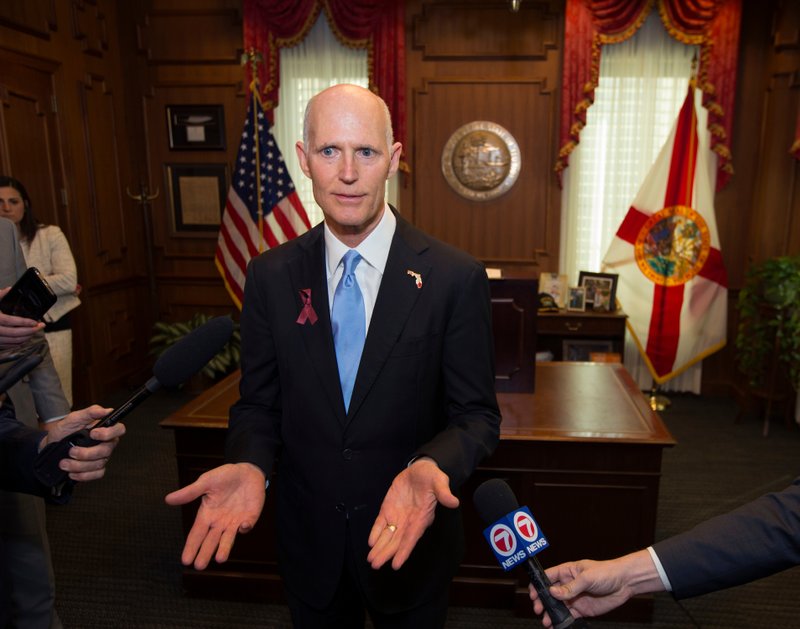Florida challenges order to make voting rights changes
TALLAHASSEE, Fla. (AP) — Ratcheting up a bitter legal fight in an important swing state, Republican state officials on Wednesday challenged a federal judge’s order that Florida must change the process used to restore voting rights to former prisoners.
Attorney General Pam Bondi, acting on behalf of Gov. Rick Scott and the state’s clemency board, appealed the judge’s decision to block the state’s current system of forcing ex-felons to wait at least five years before they can ask for the right to vote.
U.S. District Mark Walker had given Scott and state officials until April 26 to create a new process, but attorneys working for Bondi asked that Walker’s order be placed on hold while the case moves to a federal appeals court in Atlanta.
“People elected by Floridians should determine Florida’s clemency rules for convicted criminals, not federal judges,” said John Tupps, a spokesman for Scott. “The governor will always stand with victims of crime. He believes that people who have been convicted of crimes like murder, violence against children and domestic violence, should demonstrate that they can live a life free of crime while being accountable to our communities.”
Hours after the appeal was made, Walker turned down Florida’s request to put the case on hold and said this “court does not play games.” The judge told the state it still needs to comply with initial order and he sharply criticized Scott and other state officials.
“Rather than comply with the requirements of the United States Constitution, defendants continue to insist they can do whatever they want with hundreds of thousands of Floridians’ voting rights and absolutely zero standards,” Walker wrote. “They ask this Court to stay its prior orders. No.”
Florida’s constitution automatically bars felons from being able to vote after leaving prison. The state’s clemency process allows the governor and three elected Cabinet members to restore voting rights, although the governor can unilaterally veto any request. The process has changed over the years.
Shortly after taking office in 2007, then-Republican Gov. Charlie Crist convinced two of the state’s three Cabinet members to approve rules that would allow the parole commission to restore voting rights for non-violent felons without hearings, and within a year, more than 100,000 felons were granted voting rights. Scott and Bondi and other state officials changed the system in 2011 and since then fewer than 3,000 of former prisoners have had their rights restored.
Former prisoners who had their applications turned down sued the state. Walker ruled that the while the ban itself was legal that the process used to decide who got their voting rights restored was flawed and appeared to be swayed by partisan politics.
Fair Elections Legal Network and the lawyers who sued the state blasted the decision to appeal: “Their continued resistance to adopting any uniform, non-arbitrary system for restoring voting rights betrays a brazen disregard, if not disdain, for basic principles that go to the heart of our democracy.”
In a court filing accompanying the appeal, Bondi’s office defended the current process by saying that statistics showed the recidivism rate was higher among those who had their rights restored under the system used when Crist was governor. Attorneys for Florida also pushed back against allegations of partisan tilt by pointing out that the governor and clemency board had access to confidential information that was used to make a final determination on voting rights.
The fight over voting rights for former prisoners comes just months before Florida voters will be asked to alter the current ban. If 60 percent of voters approve a proposed constitutional amendment in November, most former prisoners would have their rights automatically restored.





No Comment